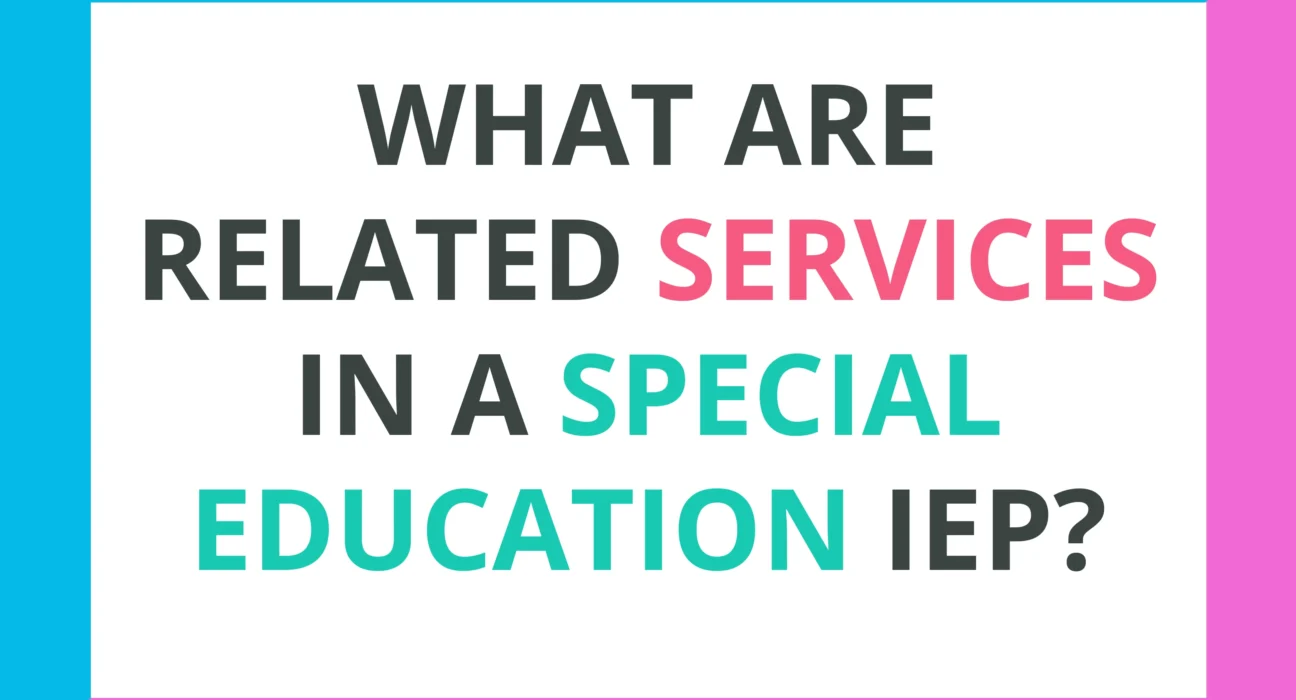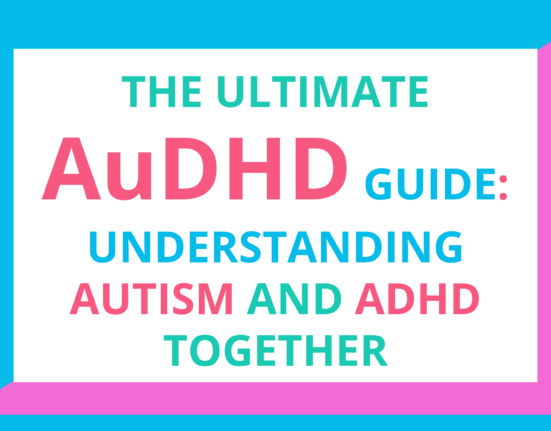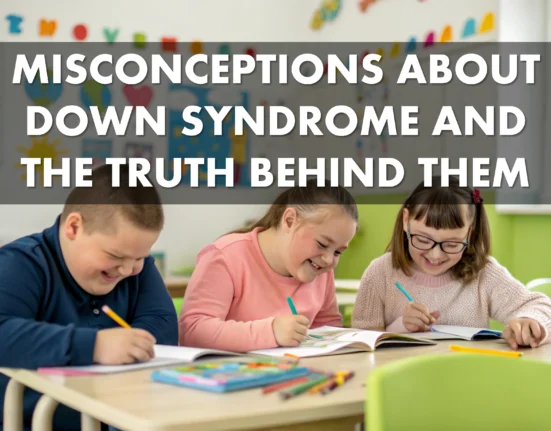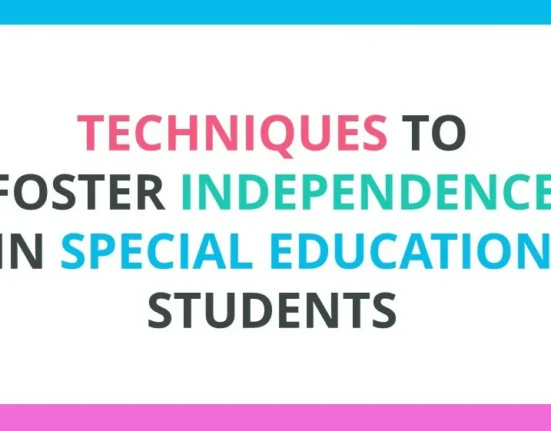Related services are an integral part of a Special Education Individualized Education Program (IEP), designed to support students with disabilities in achieving their educational goals. These services go beyond academic instruction, providing additional resources and support that address the unique needs of each student. From occupational therapy to transportation, related services ensure that students have the necessary tools to succeed in their educational environment.
Table of Contents
Introduction to Related Services in Special Education IEP
When discussing special education, the focus often lies on tailored instruction and classroom accommodations. However, equally important are the related services that complement and enhance the educational experience of students with disabilities. These services, mandated by the Individuals with Disabilities Education Act (IDEA), play a crucial role in ensuring that every child receives a free and appropriate public education (FAPE). Understanding these related services is key to fully grasping the comprehensive nature of an IEP.
Defining Related Services in an IEP
The term “related services” encompasses a broad spectrum of supportive services required to assist a child with a disability in benefiting from special education. According to IDEA, related services include, but are not limited to, transportation, and such developmental, corrective, and other supportive services as may be required to assist a child with a disability to benefit from special education. This can involve a wide range of professionals, from speech-language pathologists to occupational therapists, all working towards a common goal: the student’s success.
Legal Foundations of Related Services
The foundation of related services is rooted in IDEA, which outlines the rights of students with disabilities and the responsibilities of public schools. IDEA requires that related services be provided at no cost to parents if they are necessary for the child to benefit from their education. This legal backing ensures that students receive comprehensive support, tailored to their individual needs, and that schools are held accountable for delivering these essential services.
Why Related Services Matter in Special Education
Related services are not merely an add-on to special education; they are a fundamental component that can significantly impact a student’s ability to learn and thrive. These services address the barriers that might otherwise hinder a student’s academic progress, social integration, or overall well-being. By offering specialized support, related services enable students to participate more fully in school activities and achieve their educational goals.
Enhancing Educational Outcomes
The ultimate purpose of related services is to enhance the educational outcomes of students with disabilities. For instance, a student with speech and language impairments might struggle with communication, which can affect both academic performance and social interactions. Speech-language therapy, as a related service, provides targeted interventions that improve the student’s communication skills, thereby positively influencing their overall educational experience.
Identifying Needs for Related Services in an IEP
Determining which related services a student requires is a critical step in the IEP process. This involves a thorough assessment of the student’s needs, conducted by a team of professionals that includes educators, therapists, and parents. The assessment considers various aspects of the student’s life, including their physical, emotional, and academic needs.
Assessing Student Needs
A comprehensive needs assessment is essential for identifying the related services that will most benefit the student. This assessment might include observations, standardized tests, and input from teachers and parents. The goal is to gather enough information to create a well-rounded profile of the student’s strengths and challenges, ensuring that the IEP team can make informed decisions about the necessary services.
Common Types of Related Services
Related services encompass a wide range of supports, each tailored to address specific needs. Here are some of the most common types of related services included in IEPs:
Occupational Therapy
Occupational therapy focuses on helping students develop the skills needed for daily living and school participation. This might include improving fine motor skills, such as writing or using scissors, or developing strategies to manage sensory processing issues. Occupational therapists work closely with students to build independence and confidence in their abilities.
Physical Therapy
Physical therapy is provided to students who have difficulty with mobility or physical coordination. This service helps students improve their gross motor skills, such as walking, running, or navigating the school environment. Physical therapists also assist with positioning and movement strategies that enable students to participate more fully in school activities.
Speech-Language Pathology
Speech-language pathology services address communication disorders, including difficulties with speech production, language comprehension, and social communication skills. These services are crucial for students who struggle to express themselves or understand others, impacting their ability to participate in classroom discussions and social interactions.
Counseling Services
Counseling services support the emotional and mental health of students, helping them navigate challenges such as anxiety, depression, or social difficulties. School counselors or psychologists provide these services, often working with students individually or in groups to develop coping strategies and improve emotional well-being.
Psychological Services
Psychological services include assessments, interventions, and consultations aimed at supporting the mental health and educational progress of students. School psychologists work closely with the IEP team to develop behavior plans, conduct evaluations, and provide crisis intervention when needed.
Audiology Services
For students with hearing impairments, audiology services are essential. Audiologists assess hearing levels, recommend assistive devices, and provide strategies to improve communication in the classroom. These services ensure that students with hearing loss can access and participate in their education on an equal footing with their peers.
Transportation Services
Transportation is a related service that ensures students with disabilities can get to and from school safely. This might involve specialized buses with wheelchair lifts or accommodations for other mobility needs. Transportation services are a critical component for students whose disabilities make standard transportation options unsuitable.
Specialized Related Services for Unique Needs
In addition to the more common related services, there are specialized supports available for students with unique needs. These services are tailored to address very specific challenges that might not be as prevalent among the general student population.
Vision and Mobility Services
For students with visual impairments, vision services include specialized instruction in using braille, assistive technology, and orientation and mobility training. Mobility training teaches students how to navigate their environment safely and independently, which is crucial for their participation in both school and community life.
Assistive Technology Services
Assistive technology services involve the evaluation and provision of devices that help students with disabilities access the curriculum. This can include anything from speech-generating devices for non-verbal students to specialized software that supports learning. These services are essential for leveling the playing field and allowing students to perform tasks that might otherwise be difficult or impossible.
Recreation Therapy
Recreation therapy uses play, recreation, and leisure activities to improve a student’s physical, emotional, and social well-being. This type of therapy is particularly beneficial for students who need to develop social skills or find alternative ways to participate in school activities.
The IEP Process for Including Related Services
Including related services in an IEP is a collaborative process that requires input from multiple stakeholders. The IEP team, which typically includes educators, specialists, and the student’s parents, works together to identify the services that will best support the student’s needs.
How Related Services Are Integrated into the IEP
Once the necessary related services are identified, they are integrated into the IEP with specific goals and objectives. Each service is outlined in detail, including the frequency, duration, and location of the services. The IEP also specifies how progress will be measured and who will be responsible for delivering the services.
Role of the IEP Team in Identifying Services
The IEP team plays a crucial role in determining the related services a student needs. This team brings together diverse expertise, ensuring that all aspects of the student’s development are considered. The team discusses the student’s needs, reviews assessment data, and collaborates on creating a plan that includes the most appropriate related services.
Parent and Student Involvement
Parents and students are essential members of the IEP team. Their insights into the student’s daily life, preferences, and challenges provide valuable context for making decisions about related services. Involving students in the process, when appropriate, also helps them develop self-advocacy skills and a better understanding of their own needs.
Monitoring and Evaluating Related Services
Effective delivery of related services requires ongoing monitoring and evaluation. The IEP team must regularly review the student’s progress to ensure that the services are having the desired impact.
Tracking Progress in Related Services
Progress tracking is an integral part of the IEP process. Service providers document the student’s progress towards the goals outlined in the IEP, using a variety of tools such as observations, assessments, and progress reports. This data is used to evaluate the effectiveness of the services and make any necessary adjustments.
Adjusting Services Based on Progress
If a student is not making expected progress, the IEP team may need to revisit and revise the related services. This might involve increasing the frequency of services, changing the approach, or adding new services to better meet the student’s needs. Flexibility and responsiveness are key to ensuring that related services continue to support the student’s development effectively.
Legal Rights and Protections for Related Services
Parents and students have specific legal rights regarding related services under IDEA. These rights are designed to protect students and ensure that they receive the support they need to succeed.
IDEA and Related Services
IDEA mandates that related services be provided as part of a student’s IEP if they are necessary for the student to benefit from special education. This legal framework ensures that students have access to the services they need and that schools are required to provide them without charge to the parents.
Parental Rights and Due Process
Parents have the right to be involved in all decisions regarding their child’s related services. They can request changes to the IEP, ask for independent evaluations, and challenge decisions they disagree with through due process. Understanding these rights is essential for parents to advocate effectively for their child’s needs.
Challenges in Implementing Related Services
While related services are critical, implementing them can come with challenges. Schools and IEP teams often face obstacles that can impact the delivery of these services.
Availability of Services
In some areas, finding qualified professionals to provide related services can be difficult, particularly for specialized services like audiology or vision support. This can result in delays or gaps in service delivery, which can hinder a student’s progress.
Coordination Among Service Providers
Related services often involve multiple providers, such as therapists, counselors, and educators. Coordinating these services can be challenging, especially when providers have different schedules or work in different locations. Effective communication and collaboration among providers are essential to ensure that services are delivered consistently and effectively.
Strategies for Effective Delivery of Related Services
To overcome challenges, schools and IEP teams can implement strategies that improve the delivery of related services and enhance their effectiveness.
Collaboration Among IEP Team Members
Regular communication and collaboration among IEP team members are crucial for the successful delivery of related services. Team meetings, shared progress reports, and coordinated planning help ensure that all providers are working towards common goals and that services are delivered in a cohesive manner.
Importance of Communication Between School and Home
Maintaining open lines of communication between the school and home is vital for the success of related services. Parents should be kept informed about their child’s progress, and any concerns or changes in the student’s needs should be promptly addressed. This partnership between school and home ensures that the student receives consistent support across all environments.
The Impact of Related Services on Student Success
The positive impact of related services on student success cannot be overstated. These services address critical areas of need that, if left unaddressed, could significantly hinder a student’s ability to succeed in school.
Case Studies of Successful Outcomes
Numerous case studies highlight the success of related services in improving educational outcomes for students with disabilities. For example, a student receiving speech-language therapy might show marked improvement in communication skills, leading to better participation in class and stronger social relationships. Similarly, a student with physical therapy might develop the motor skills needed to navigate the school environment independently, boosting their confidence and academic performance.
The Future of Related Services in Special Education
As the field of special education continues to evolve, so too do the related services that support students. Emerging trends and innovations are shaping the future of these services, offering new opportunities to enhance student success.
Emerging Trends and Innovations
Advancements in technology are playing a significant role in the evolution of related services. For example, teletherapy has become increasingly common, providing students with access to services that might not be available locally. Additionally, new assistive technologies are continually being developed, offering more personalized and effective tools for students with disabilities.
FAQs About Related Services in an IEP
What are related services in an IEP?
Related services in an IEP are additional supports provided to help students with disabilities benefit from their special education. These can include therapies, counseling, transportation, and other services necessary for the student’s success.
How are related services determined in an IEP?
Related services are determined through a comprehensive assessment of the student’s needs by the IEP team. The team, including parents and educators, evaluates various aspects of the student’s development to identify which services are necessary.
What is the role of parents in related services?
Parents play a crucial role in the IEP process, providing input on their child’s needs and preferences. They have the right to be involved in all decisions regarding related services and can advocate for their child’s best interests.
Can related services be provided outside of school hours?
Yes, related services can be provided outside of school hours if necessary to meet the student’s needs. The IEP team determines the most appropriate schedule for services based on the student’s requirements.
What happens if a student does not progress with related services?
If a student is not making progress, the IEP team will review and adjust the related services as needed. This may involve changing the approach, increasing the frequency of services, or exploring additional supports.
How often should related services be reviewed?
Related services should be reviewed at least annually during the IEP meeting. However, if concerns arise, parents or educators can request a review at any time to ensure the services are meeting the student’s needs.
Conclusion
Related services are a cornerstone of special education, providing essential support that enables students with disabilities to thrive. By understanding and effectively implementing these services, IEP teams can ensure that every student receives the comprehensive education they deserve. As we look to the future, continued innovation and collaboration will be key to enhancing the impact of related services, ultimately leading to better outcomes for students with disabilities.






